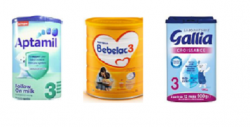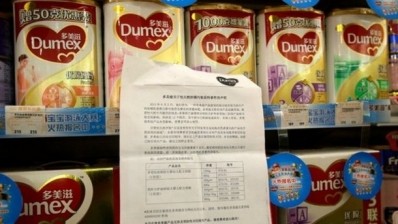DISPATCHES FROM GLOBAL FOOD SAFETY, MADRID
Danone Nutricia: The more we know the more we have to solve

Dr Farai Maphosa, scientific risk assessment manager quality governance and systems at Danone Nutricia, said as hazards become more well-known there are more issues to solve.
This has partly come from science and analytical methods improving, he added at the Global Food Safety Summit in Madrid.
“It just goes with the whole aspect of development really, as we get to develop new methods, improve on our testing methods and capability, as we increase on the capability to detect at very low levels we just tend to see more,” he said.
“There’s scientific research which is leading the way on getting to understand how things work and sadly or fortunately or maybe it’s both, it also presents these problems for industry because things that you’ve always deemed as safe suddenly can be seen as unsafe.”
Was safe, now questions raised
Maphosa said this is the case with several of the mycotoxins.
“With a lot of research that’s going on all kinds of links to cancer or endocrine disruption come up over things that we have been eating for generations and now we have to deal with these aspects because this is just the global environment where we live in, where our food distribution networks are all so different.
“This also drives the need for testing, the need to know more about what is in our food and it is a reality we have to face and we have to ensure above all that there is proper risk assessment and proper risk management that comes along with the things that we get to know.”
He added with residues and contaminants alternatives are not always safer or present different concerns.
Transparency and traceability
Maphosa said there are differences in the transparency demands they are asked for.
“Part of it is pushed by the background of issues within a particular country, it is also influenced by the level of knowledge, the level of understanding and largely also by what people read in the media and what they get by social media,” he said.
“That is a big driver to what people ask for from you in terms of traceability and so transparency is a very key aspect to show that you are a credible business and these are things that we have to deal with as a company. “
When asked about the selection of research, Maphosa said you need to have teams dedicated to scientific risk assessments.
“You need to have the right experts on board, you need to have relationships with key opinion leaders and a lot of these are also driving the research and so you need to be able to have the right networks with these key opinion leaders,” he said.
“Also it is important for these key opinion leaders to be able to work with us because at the end of the day their research is supposed to benefit and not become a blocker to food safety.”
It is about working in collaboration with the right experts, key opinion leaders and having policy makers and regulators coming into this discussion, said Maphosa.
“Sometimes you feel there is a fragmentation of all these players but it is important that they come together with industry to make sure that we have the proper risk assessment and the proper policies that are good in the background of all the knowledge that we know and we have now,” he said.
Who is the consumer?
Maphosa presented at the summit on managing the complexities of infant nutrition standards.
Infants need seven times more nutrients than adults per kg body weight but you also need to manage the small window between efficacy and toxicity, he said.
“When you look at babies you have to look at the risk profile of the babies which has to do with the particular age group, you also have to look at their nutritional needs which are important in the first 1,000 days of life.
“That’s a very critical stage of growth, there are critical demands, specific needs for nutrition and also they are still fragile and vulnerable.
“You need to be able to have all the safety aspects built into the food that you provide for them either as infant formula or as they grow up with complimentary foods, you need to be able to take care of the appropriate risk assessments for your food safety and to be able to ensure that you are also compliant with the legislation.”





